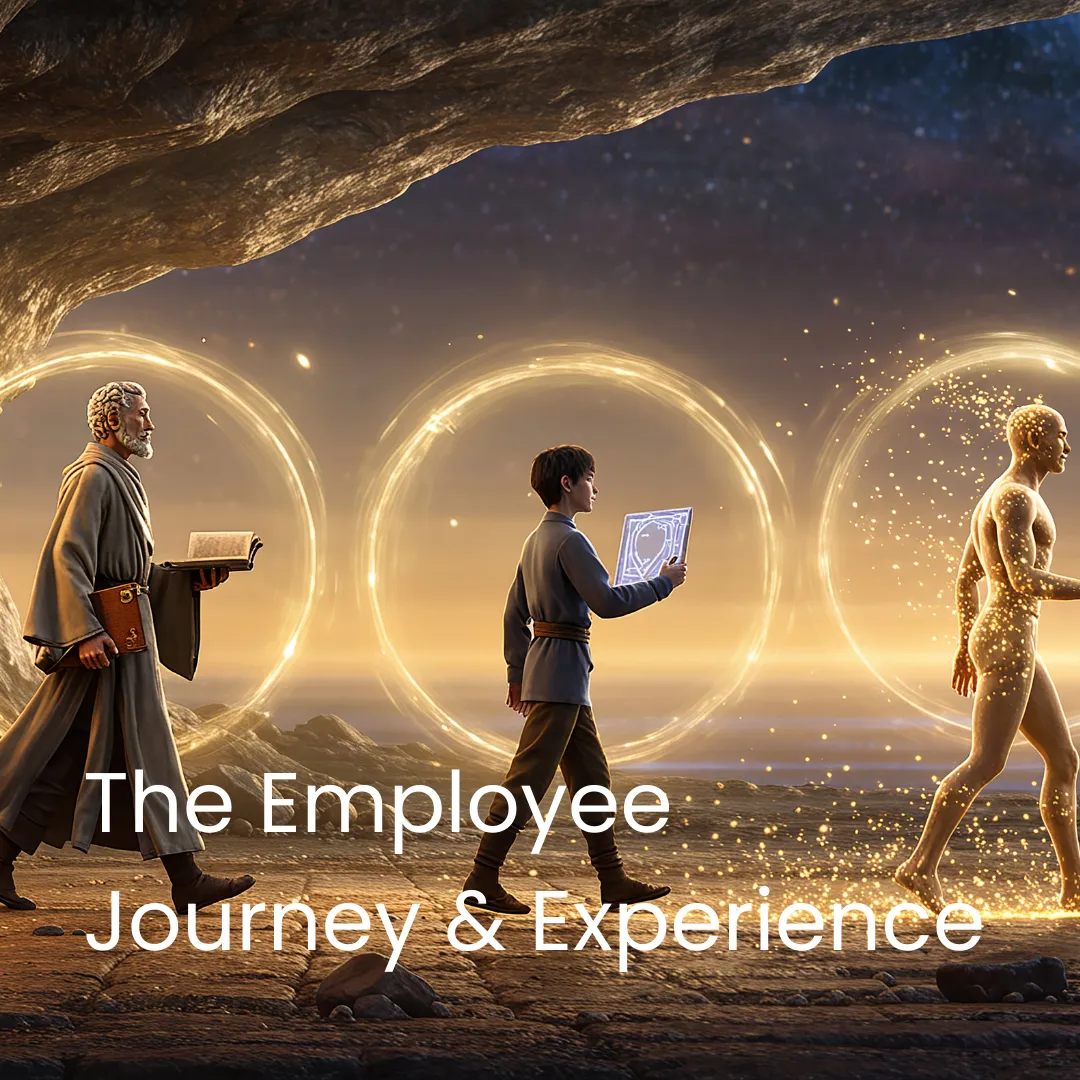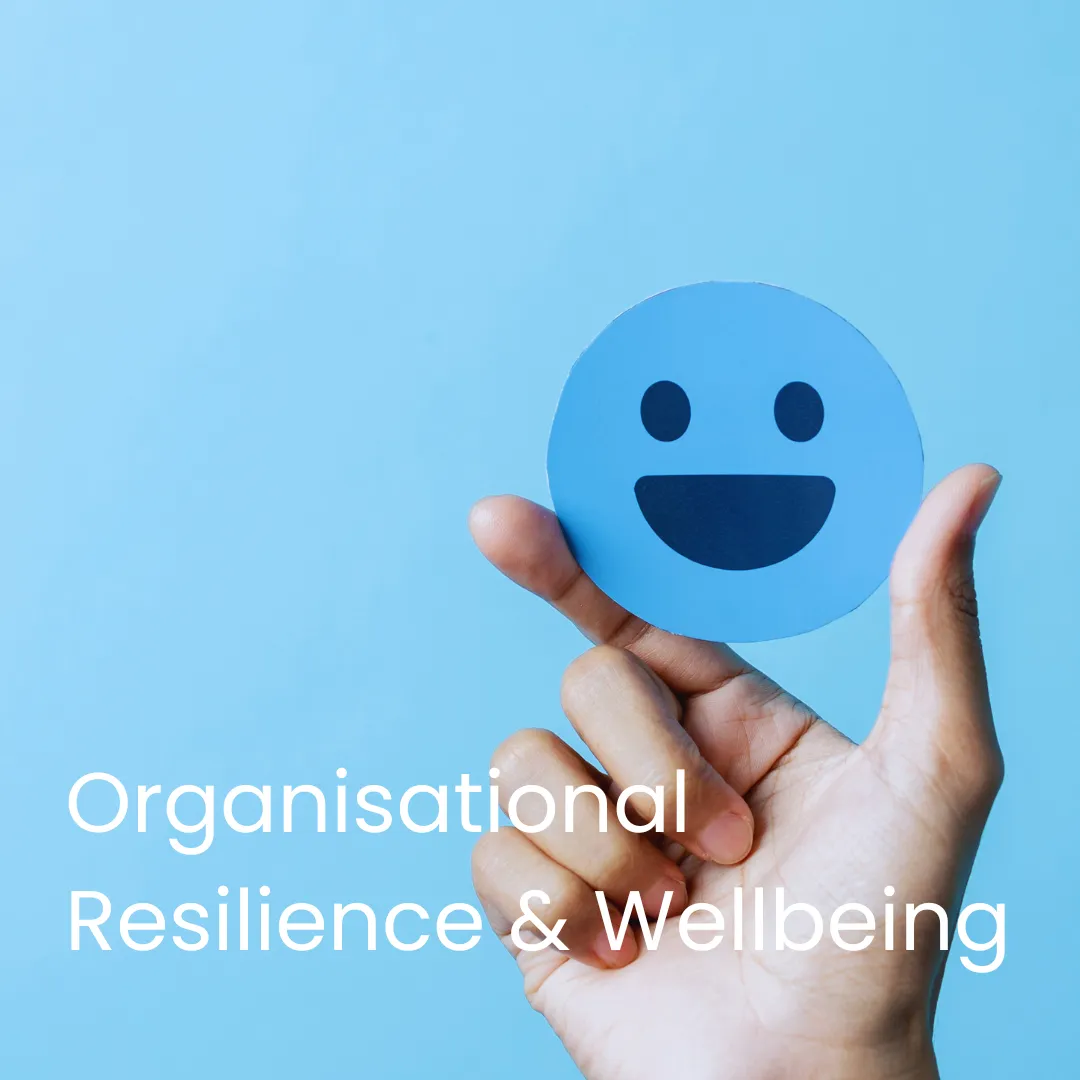This Is Why They Leave Video Series
Employee Experience (EX) videos on why your employees leave

Welcome to the "This Is Why They Leave" series—an unvarnished, direct, and powerful look at the 30 hard truths leaders often avoid.
For too long, the narrative around employee turnover has been filled with excuses and corporate platitudes. We’re told people leave for more money, but that’s rarely the whole story.
In this series, we pull back the curtain on the real, unfiltered truths. Each video is a short, hard-hitting exploration of the specific, often painful, reasons that cause your best people to walk out the door, from cowardly managers and toxic cultures to passive-aggressive leadership and broken promises.
This isn't just about identifying the problems; it's about providing the insights you need to stop the cycle. These truths are a direct call to action, offering leaders the profound self-awareness and understanding required to build a culture where people don’t just stay—they thrive.
This Is Why They Leave - Truth 1: It's Not About the Money
Everyone says people leave for more money. As an expert in employee experience, I can tell you it's almost never the root cause. This reel uncovers the real reasons people walk out the door, and why they have nothing to do with their salary.
This Is Why They Leave - Truth 2: Their Boss Sucks
This isn't just a catchy phrase; it's a stark reality. Your managers are the linchpin of your employee experience. Neglect their development, and you'll pay the price in turnover. Is it time to invest in your leadership layer?
This Is Why They Leave - Truth 3: Their ideas are always ignored
It's soul-crushing to put your energy and creativity into a suggestion, only for it to be met with silence. When people feel unheard, they eventually stop speaking up, and that's a huge loss for the business.
This Is Why They Leave - Truth 4: Leadership isn't leading by example
It's soul-crushing to put your energy and creativity into a suggestion, only for it to be met with silence. When people feel unheard, they eventually stop speaking up, and that's a huge loss for the business.
This Is Why They Leave - Truth 5: Burnout Is The New Normal
Burnout is a silent epidemic, and it's not just about feeling tired. It's about a culture that normalises pushing past our limits until we break. This is the real cost of a relentless pace on your people and your business.
This Is Why They Leave - Truth 6: My reward for doing my job well is more work
This meme perfectly captures a frustrating reality: the 'reward' for being a high performer is often just... more work. If you want to keep your top talent, celebrate their wins with growth and reward, not just an expanded to-do list.
This Is Why They Leave - Truth 7: Management is afraid of tough conversations
The discomfort of confronting an issue pales in comparison to the damage caused by ignoring it. When leaders shy away from candour, it fosters resentment, lowers morale, and lets small problems explode.
This Is Why They Leave - Truth 8: No one cares about their well-being
"Just grin and bear it" and "stress is part of the job" are the biggest lies we tell ourselves at work. When companies don't genuinely prioritise well-being, they're telling their employees, "We care more about your output than your health."
This Is Why They Leave - Truth 9: The perks don't make up for the problems
Ping-pong tables and free snacks won't fix a toxic manager or an impossible workload. People aren't stupid. They see right through the veneer and would rather have psychological safety over free pizza.
This Is Why They Leave - Truth 10: People Don't Want a Boss. They Want a Guide.
True leadership isn't about dictating; it's about empowering. Being a boss is about control, but being a guide is about influence, development, and building a team that's confident and capable.
This Is Why They Leave - Truth 11: "We're a family"... Except When It Matters
"We're a family here!"—a phrase often used, and rarely backed up. When that façade crumbles at the first sign of inconvenience—like needing sick leave or asking for fair pay—it creates deep resentment and destroys trust. Be a professional, respectful company, not a fake family.
This Is Why They Leave - Truth 12: Loyalty is Not a Two-way Street
You want long-term commitment for a 2% pay bump and a "World's Best Employee" mug? Good luck. Loyalty is earned through genuine investment in people's development, compensation, and well-being.
This Is Why They Leave - Truth 13: One Bad Manager Can Ruin Your Career
One great manager can launch your career. One bad one can ruin it.
Managers are the daily reality of the employee experience, and investing in their development isn't optional; it's essential for retention and success.
This Is Why They Leave - Truth 14:Your Company Values Are a Work of Fiction.
Those posters on the wall? The ones about 'integrity' and 'respect'? Your people are watching to see if your actions actually back them up. When they don't, trust is completely eroded and your employees feel like they are living a lie.
This Is Why They Leave - Truth 15: You Hired Brilliant People, Then Managed the Brilliance Out of Them
A tough truth for leaders: you hired brilliant people, then managed the brilliance out of them. The very things you hired them for—their autonomy and creativity—you’ve now smothered with bureaucracy and micromanagement.
This Is Why They Leave - Truth 16: The Job Description Was a Lie
When the job description is a lie, you create a complete breach of trust from day one. Employees were hired based on a promise, and when that promise isn't honoured, it's the fastest way to drive them to a competitor.
This Is Why They Leave - Truth 17: The Rules Only Apply to Some of You.
Inconsistency in policies and treatment is a killer of morale. It breeds resentment and creates a culture where people feel like their hard work and dedication don't matter as much as someone else's.
This Is Why They Leave - Truth 18: Meetings That Could Have Been an Email
How many hours a week are you spending in pointless meetings? It's not just a waste of time, it's a soul-crushing experience that shows a fundamental lack of respect for your team's time and sanity.
This Is Why They Leave - Truth 19: Lack of Clarity in Goals and Expectations
"Working hard, but not knowing what you're working towards." It's the fastest way to burnout. Your job as a leader isn't to just provide tasks; it's to provide purpose and a clear finish line.
This Is Why They Leave - Truth 20: Your Employees Don't Want Beer Fridays. They Want to Not Cry on Sunday Nights
The problem with 'Beer Fridays' isn't the beer itself, it's when it's used as a superficial perk to mask a broken culture. High-performing teams want boundaries, respect, and psychological safety. This is how you build a loyal team, not with performative, exclusionary events.
This Is Why They Leave - Truth 21: Their onboarding experience was a scavenger hunt without a map.
"Here's your computer... good luck!"
How often have you seen a brilliant new hire get thrown in at the deep end because of a chaotic onboarding process? A poor start can derail a new employee's potential and make them question their decision to join your company.
This isn't just about first impressions. A bad onboarding experience sets the tone for the entire employee journey and sends a clear message: we aren't prepared for you.
How are you making sure your new starters feel supported, not lost, from day one?
This Is Why They Leave - Truth 22: Your Feedback Loop Is Broken
That annual review where you give a platitude and they give a platitude? That’s not a feedback loop.
Your best people want to grow and get better. When you don't give them real, actionable feedback, you're not helping them. You're just setting them up to leave.
What does meaningful feedback look like in your workplace?
This Is Why They Leave - Truth 23: Companies not paying a living wage but expecting high performance and maximum dedication.
You cannot expect world-class performance when you are paying a minimum wage investment.
The way a company compensates its people is a direct reflection of its values—not what's written on a poster. A low wage with high expectations is a fast track to disengagement and resentment. It’s a complete strategic failure.
What's the biggest disconnect you've seen between pay and expectations?
This Is Why They Leave - Truth 24: Bullying at Work Is a Leadership Failure
Bullying at work isn't a "personal conflict"—it's a leadership failure.
When leaders allow bullying to go unchecked, it sends a clear message that psychological safety is not a priority. This creates a toxic environment that drives away top talent and erodes trust. You cannot have a high-performing team in an unsafe environment.
Have you ever witnessed or experienced bullying at work?
This Is Why They Leave - Truth 25: Senior Manager Ego Clashes
Leaders, your internal ego clashes are not just "disagreements." They are a strategic failure that is costing you your best people.
When you allow professional disagreements to devolve into chaos, you create an environment of anxiety and mixed messages. Your team is forced to guess, and their productivity and morale will plummet. This is a direct failure of leadership to manage its own emotional intelligence.
What's the cost of ego in your workplace?
I love Gordon Ramsay's shows as much as the next person, but his television persona is not a sustainable leadership model. The most impactful leaders are not always the loudest. They are the ones who listen, observe, and protect their team.
Leadership isn’t just about making your team feel heard; it’s about removing obstacles, shielding them from the politics, and mentoring them to succeed.
What's one of your superpowers as a quiet leader?
This Is Why They Leave - Truth 27: The Cowardice of Bad Managers
I’m going to be direct. When a manager fails to communicate crucial information—especially during a takeover—it isn't just a failure of communication; it’s a failure of courage.
Your team relies on you to be their shield. When you stand by as they are blindsided by new policies and disciplinary action, you are betraying their trust. The mark of a true leader isn’t in their title; it’s in their willingness to fall on their sword to protect their team.
What's the worst betrayal you've seen from a manager?
This Is Why They Leave - Truth 28: Transparency is a buzzword, not a practice.
"We believe in open communication." "Radical transparency." These phrases are on every company deck, but how many of them are actually true?
A lack of transparency breeds speculation and erodes trust, leading to higher turnover and a disengaged workforce. A leader's actions—or lack of them—speak far louder than any mission statement.
How transparent is your company, really?
This Is Why They Leave - Truth 29: Promotions for Tenure, Not for Talent.
You cannot build a high-performing team by promoting for tenure, not for talent. Promotions go to those who outperform, not those who outlast. This isn't Survivor.
This single policy is a massive mistake. It frustrates rising stars who see no path for growth and creates a cascade of incompetent leaders who were never ready for the job.
Have you ever seen a promotion that just didn't make sense?
This Is Why They Leave - Truth 30: The Finale
For the past 30 days, we've explored the uncomfortable truths of why people leave their jobs. Today, for the final installment, it all culminates in one undeniable reality: They don't leave companies; they leave YOU.
Every instance of burnout, every ignored idea, every cowardly management decision, every ego clash, every lie—it all traces back to leadership. This isn't about blame; it's about accountability. Your best people are not leaving your brand or your product; they are leaving your leadership.
Are you ready to truly face that truth and build a culture where people want to stay and thrive? If so, let's talk.
PERFORMANCE AND GOAL ACHIEVEMENT BLOGS
Focus on strategies, coaching insights, and tools to overcome career plateaus and achieve measurable growth.

Victoria Canham Coaching Blog: What is... Tech Coaching?
What is Tech Coaching?
In today's rapidly evolving world, technology has become an integral part of our daily lives. From smartphones to artificial intelligence, technological advancements are reshaping various industries and transforming the way we live and work.
As a result, the demand for individuals with strong technology skills is on the rise, particularly in entrepreneurship. However, not everyone possesses the necessary knowledge and expertise to navigate the digital landscape effectively. This is where tech coaching steps in, playing a crucial role in bridging the digital divide and empowering individuals to thrive in the digital age.
Understanding Tech Coaching
Tech coaching refers to a personalised and collaborative approach to support individuals in developing their technological skills and understanding. It involves guiding and mentoring individuals, providing them with the necessary tools, knowledge, and strategies to harness the power of technology effectively.
The Benefits of Tech Coaching
Tech coaching offers numerous benefits, such as increased confidence and competence in using technology, enhanced creativity and collaboration, improved problem-solving abilities, and the ability to adapt to emerging technologies. It empowers entrepreneurs to become active participants in the digital world and equips them with skills that are crucial to running a business.
The Role of a Tech Coach
A tech coach assumes a multifaceted role, acting as a mentor, guide, and resource person. They collaborate with business owners, offering support and expertise in integrating technology into the business to save time and money. Tech coaches also provide ongoing professional development opportunities, keeping business owners up to date with the latest trends and tools in the ever-changing tech landscape.
Tech coaching adapts to and embraces emerging technologies and trends to remain relevant and effective. This includes exploring augmented reality, artificial intelligence, virtual reality, and other innovative tools that can enhance the coaching experience and support learning.
How can tech coaching help you?
As a small business owner, it's essential to have a strong understanding of technology and how to leverage it effectively for your business. Tech coaching can help you improve your technological proficiency by providing guidance, training, and support in using various software, tools, and digital platforms, as well as a variety of done for you solutions, such as building out your marketing funnels and email marketing strategy.
I can help you implement your tech, marketing tech and business strategy. Book a discovery call here.
Conclusion
In today's digital age, tech coaching plays a vital role in equipping individuals with the necessary skills to thrive in a technology-driven world. It bridges the digital divide, empowers business owners and marketers, and enhances business outcomes. By embracing tech coaching, entrepreneurs can create a culture of innovation, prepare their businesses for the future, and unlock the full potential of technology for small business.
Signup to receive weekly performance and employee experience secrets
Signup to receive weekly performance and wellbeing secrets
© Copyright 2026 Victoria Canham Coaching | Website built by Me on FEA Create (aff.)
Performance Coaching Reading, London, Berkshire, Oxford | St George's Road, Reading, Berkshire, United Kingdom, RG30 2RL | +44 7377 527 529 | [email protected] Open Monday to Friday 9 am until 5 pm





